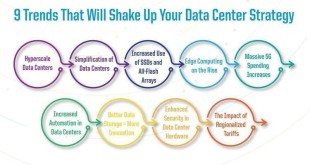The healthcare industry is continuously evolving with advancements in medical technology, treatment methodologies, and regulatory requirements. Keeping up with these changes demands ongoing education and training for healthcare professionals. This is where Learning Management Systems (LMS) come into play, revolutionizing how healthcare organizations deliver, manage, and track educational content and training programs.
A robust Learning Management System (LMS) can streamline these efforts, offering healthcare professionals flexible, efficient, and effective learning experiences. Here, we explore the essential features that make an LMS invaluable for healthcare organizations.
What is a Learning Management System (LMS)?
A Learning Management System (LMS) is a software application or web-based technology used to plan, implement, and assess specific learning processes. LMS software is used for the administration, documentation, tracking, reporting, automation, and delivery of educational courses, training programs, and development programs. In healthcare, an LMS is instrumental in ensuring that medical professionals stay updated on the latest advancements and best practices.
Assessing Training Needs
Before implementing an LMS, it’s crucial to clearly define your training needs. Determine the skills that need to be taught, the competencies that should be introduced, and the current market trends that require attention. This assessment ensures that the LMS is tailored to meet the specific educational requirements of your organization.
Key Features of an LMS in Healthcare
Healthcare-focused LMS platforms offer a range of features tailored to meet the unique needs of the industry:
- User-Friendly Interface
- An intuitive and simple user interface is essential for an LMS to be effective. A user-friendly platform ensures that learners can easily access and interact with the content, leading to higher compliance and engagement. Features like easy accessibility to learning materials and automated suggestions for additional programs create a more engaging learning environment.
- Customization
- Healthcare LMS software should offer customizable features and functionalities to provide personalized learning experiences. This includes the ability to update required skills, certifications, and competencies, ensuring that the LMS meets the evolving needs of the organization.
- Integration
- Seamless integration with existing healthcare systems is vital. An LMS should be able to integrate with medical and patient databases, matching the complex hierarchies and workflows of the organization. Attention to APIs and third-party integrations is crucial for ensuring the LMS can be used across different departments.
- Scalability
- The ability to scale is a significant factor when choosing an LMS. As healthcare organizations grow, the LMS must accommodate an increasing number of learners without compromising efficiency. Proper integration with the organization’s systems must be maintained to ensure consistent training quality.
- Responsive Design
- A responsive and mobile-friendly LMS allows users to access training materials from any device, providing the same learning experience regardless of the platform. Mobile functionality is especially important in healthcare, where professionals often need to learn on-the-go.
- Diverse Training Delivery
- An LMS should support multiple formats for learning materials, including text, audio, video, PDFs, and PPTs. Features like audio and video conferencing for live classes and sessions enhance the visual learning experience.
- Security and Privacy
- Data security is of utmost importance in healthcare. An LMS must have robust security measures to protect patient information and training records. Compliance with regulations like HIPAA, GDPR, and GxP ensures the confidentiality and integrity of sensitive data.
Benefits of LMS in Healthcare
Implementing an LMS in healthcare brings numerous benefits, enhancing both the efficiency and effectiveness of training programs:
1. Continuous Learning and Professional Development
An LMS allows healthcare professionals to access up-to-date educational content anytime, anywhere. This continuous learning is crucial for staying current with emerging technologies, new treatments, and evolving best practices.
2. Improved Compliance and Certification Management
Healthcare professionals are required to complete regular training to maintain their certifications and comply with legal regulations. An LMS streamlines this process by providing automated reminders, tracking completed courses, and generating compliance reports.
3. Cost-Effective Training Solutions
Traditional classroom-based training can be expensive and time-consuming. An LMS reduces costs by delivering training online, eliminating the need for physical classrooms, travel, and printed materials.
4. Enhanced Learning Experience
LMS platforms offer interactive and multimedia-rich content, making learning more engaging and effective. Features like quizzes, simulations, and video tutorials help reinforce knowledge and improve retention.
5. Efficient Onboarding and Talent Development
An LMS facilitates the onboarding of new employees by providing standardized training modules that can be accessed immediately. This ensures that new hires are quickly brought up to speed and integrated into the organization.
Healthcare LMS: Use Cases
1. Clinical Training
An LMS can deliver clinical training programs covering various medical procedures, patient care techniques, and the use of new medical equipment. This ensures that healthcare professionals are proficient and confident in their skills.
2. Compliance Training
Healthcare regulations require ongoing training in areas such as patient privacy, data security, and infection control. An LMS helps manage these training requirements efficiently, ensuring that all staff members are compliant.
3. Patient Education
LMS platforms can also be used to educate patients about managing chronic conditions, post-surgery care, and preventative health measures. Providing patients with access to this information empowers them to take an active role in their healthcare.
4. Continuing Medical Education (CME)
Healthcare professionals often need to earn CME credits to maintain their licenses. An LMS can offer a range of accredited courses, making it easier for professionals to fulfill their CME requirements.
Examples of How LMS are Used in Healthcare
- Hospitals: Training nurses, physicians, and other staff on new medical technologies, procedures, and safety protocols.
- Pharmaceutical Companies: Educating healthcare professionals about new medications, their uses, and potential side effects.
- Medical Schools and Training Institutions: Delivering online courses, blended learning programs, and managing student learning activities.
Choosing the Right Healthcare LMS
When selecting an LMS for healthcare, consider the following factors:
- User-Friendly Interface: Ensure the platform is intuitive and easy to navigate for users of all technical skill levels.
- Customization and Flexibility: The LMS should be customizable to meet the specific needs of your organization, including branding, course structures, and reporting requirements.
- Integration Capabilities: The platform should seamlessly integrate with other systems used by your organization, such as electronic health records (EHR) and HR software.
- Mobile Accessibility: Given the mobile nature of healthcare work, the LMS should be accessible on smartphones and tablets.
- Security and Compliance: Prioritize an LMS with robust security features and compliance with healthcare regulations to protect sensitive data.
Market Trends and Growth
The demand for healthcare LMS platforms is growing, driven by the need for remote learning solutions and continuous professional development. According to market reports, the healthcare LMS market is expected to reach $2.2 billion by 2026, with a compound annual growth rate (CAGR) of 24.7% from 2021 to 2026. By 2030, the global healthcare LMS market is projected to surpass $3.5 billion.
The rise in digital learning solutions, increased mobility in learning, and alignment of learning programs with business objectives are key factors propelling this growth. For example, the American Nurses Association (ANA) uses LMS platforms to enhance clinical education. Investments by market players in developing cost-effective and advanced LMS solutions are further fueling market expansion.
Leading Providers and Industry Developments
Key providers in the healthcare LMS market include Adobe Systems Inc., ADP Inc., GE Healthcare, HealthcareSource HR, Inc., and SAP SE. These companies are focusing on developing innovative and cost-effective LMS solutions to attract more customers. Strategic collaborations, mergers, and acquisitions with technology partners are common strategies to enhance offerings and expand market reach.
Recent developments in the industry include:
- Pathway Health launching the Pathway Learning Network, a new LMS for healthcare providers (October 2020).
- Apollo Pharmacy introducing myGurukool, a digital LMS to enhance employee skills (July 2020).
- Baptist Health launching advanced LMS platforms for healthcare training (October 2019).
The Future of LMS in Healthcare
The future of LMS in healthcare is bright, with exciting advancements on the horizon:
- Artificial Intelligence (AI): AI-powered features can personalize learning paths, recommend relevant resources, and provide real-time feedback based on individual learning styles and performance.
- Virtual Reality (VR) and Augmented Reality (AR): VR and AR can create immersive simulations for training on medical procedures, patient care scenarios, and anatomy visualization.
- Microlearning: LMS will increasingly support bite-sized learning modules that cater to busy healthcare professionals with short attention spans.
Conclusion
Learning Management Systems (LMS) are transforming the healthcare industry by providing efficient, flexible, and cost-effective solutions for education and training. By leveraging an LMS, healthcare organizations can ensure that their staff remains knowledgeable, compliant, and equipped to provide the highest quality of care to patients. As the healthcare landscape continues to evolve, the role of LMS platforms will become increasingly vital in supporting the ongoing professional development and education of healthcare professionals.
 International Defense Security & Technology Your trusted Source for News, Research and Analysis
International Defense Security & Technology Your trusted Source for News, Research and Analysis


